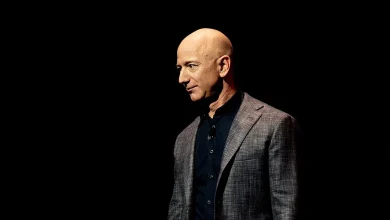Tesla Perfect Storm: Musk’s Political Gambit Ignites a Firestorm of Problems

Tesla (TSLA) is caught in a perfect storm, and its stock is taking a beating. Shares tumbled early Monday as CEO Elon Musk’s dramatic leap into politics collided with bruising policy setbacks and intensifying competitive threats, creating a whirlwind of uncertainty for investors.
At the heart of the chaos is Musk himself, who over the weekend declared the formation of a new “America Party” on his social media platform, X. The move, aimed at disrupting the “one-party system,” is exactly what weary investors feared most.
“Musk diving deeper into politics… is exactly the opposite direction that Tesla investors/shareholders want him to take,” warned Wedbush analyst Dan Ives, noting a “broader sense of exhaustion” among shareholders who want the CEO focused on cars, not campaigns.
Musk’s political gambit has managed to alienate all sides. After courting Trump supporters, he’s now feuding with the former President over the national budget. A visibly irritated President Trump fired back on his Truth Social site, saying he was “saddened to watch Elon Musk go completely ‘off the rails,’ essentially becoming a TRAIN WRECK.”
From Political Feuds to Financial Pain
This political theater comes with a staggering price tag. The very budget bill Musk opposed, now signed into law by President Trump, delivers a one-two punch to Tesla’s bottom line:
-
The $7,500 EV Tax Credit is Gone: This crucial incentive for U.S. buyers will expire after September 30, likely pulling sales forward into a Q3 rush before a potential demand cliff.
-
Zero-Emission Credits Vanish: The legislation immediately scraps the highly profitable Zero Emission Vehicle (ZEV) credits in the U.S. This isn’t a small change—these credits were a critical lifeline that saved Tesla from an operating loss in the first quarter.
Compounding the pain, Trump’s tariffs have already driven up the cost of imported Chinese batteries, squeezing margins on Tesla’s energy business.
A World of Competition Heats Up
While Musk battles on the political front, Tesla’s competitive moats are being tested. In China, a formidable new rival, the Xiaomi YU7, began deliveries this week after racking up 200,000 orders in just three minutes. It looms as a major threat to the Tesla Model Y, just as Xiaomi’s first EV is already outselling the Model 3.
Closer to home, the highly anticipated robotaxi service had a minor but symbolic setback, with a vehicle brushing a parked car in Austin. While bulls celebrate the overall progress, the incident highlights the long road ahead. Meanwhile, competitors are capitalizing on the distraction. Since the robotaxi launch, Uber (UBER) has rallied nearly 12%, and driver-assist leader Mobileye (MBLY) has soared almost 30%.
The Market’s Brutal Verdict
The market’s judgment has been swift. Tesla stock plunged 6.6% on Monday, falling below $295. The sell-off erases recent gains that were fueled by hopes Musk was stepping back from the political arena.
For Tesla investors, the equation has become dangerously complex. They now face a distracted CEO, the evaporation of key financial incentives, and a surge of powerful global competition. The question now is whether the world’s most valuable automaker can navigate the storm of its own CEO’s making.



